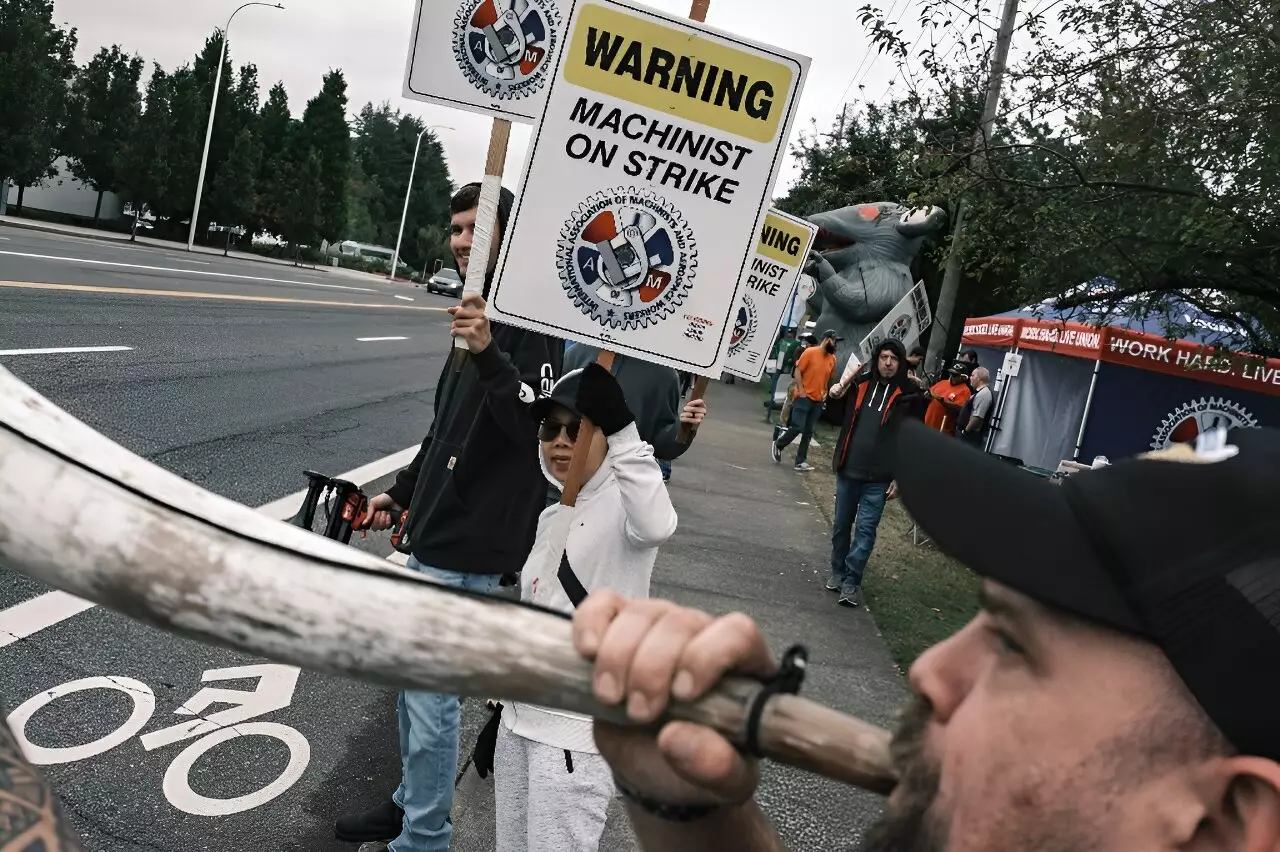In a significant labor dispute, more than 33,000 Boeing employees in the United States initiated a strike earlier this month, predominantly impacting assembly operations for the 737 MAX and 777 aircraft. The unrest emerged after workers in the Pacific Northwest resoundingly rejected a contract proposal on September 13, prompting the union, the International Association of Machinists and Aerospace Workers (IAM), to initiate the walkout. This strike represents a critical juncture for both the employees—who seek better pay and working conditions—and Boeing, which is navigating complex challenges in an increasingly competitive market.
The IAM recently announced that negotiations with Boeing had “broken off,” indicating a stark disconnect between the two parties. The union expressed its willingness to continue talks, either directly or through mediation, but emphasized that no further meetings are scheduled at this time. Boeing, on the other hand, has publicly expressed its commitment to resume negotiations and restore a constructive relationship with its employees. This underlying tension reflects deeper issues within the corporate culture and labor relations at Boeing, a company long known for its significant economic impact in the aerospace sector.
In an attempt to resolve the situation, Boeing put forth its “best and final offer,” which included a proposed wage increase of 30% and the reinstatement of annual bonuses for the workers. However, the IAM rejected this offer as insufficient, particularly regarding critical issues such as pensions and workplace benefits. The union highlighted that, despite substantive discussions mediated by the Federal Mediation and Conciliation Service (FMCS), no agreement was reached, particularly concerning the unfreezing of the defined benefit pension plan—a major sticking point for many union members.
The stalemate between Boeing and the IAM has broader implications beyond immediate wage concerns. It underscores tensions that have historically existed in labor-management relations in the aerospace industry, particularly in light of Boeing’s past labor disputes and quality control issues. The current strike reflects not just dissatisfaction with current compensation but also a demand for respect and acknowledgment of the workers’ contributions to the company’s success. As the company faces increasing scrutiny over its operational practices, there is a critical need for Boeing to reassess its engagement with employees to avoid prolonged disruptions that can damage both workplace morale and production schedules.
As Boeing and the IAM grapple with their differences, both sides must confront the reality that a resolution is imperative for the future of the company and its workforce. The importance of constructive dialogue cannot be overstated; failure to address the concerns raised by employees may lead not only to continued strikes but also to reputational damage in a competitive market. Moving forward, it will be crucial for Boeing to find a pathway to negotiation that prioritizes the well-being of its employees, ensuring that labor relations are strengthened, and mutual respect is established. Only through genuine partnership can Boeing aspire to regain its footing in an evolving industry landscape.


Leave a Reply